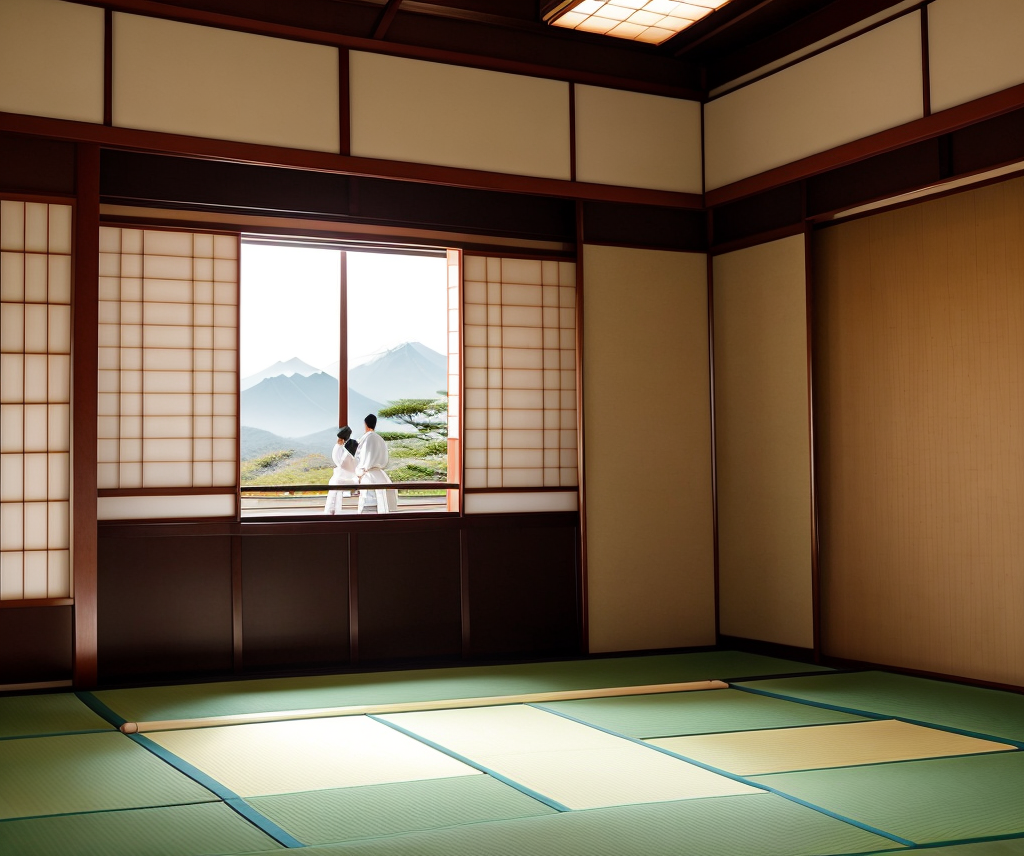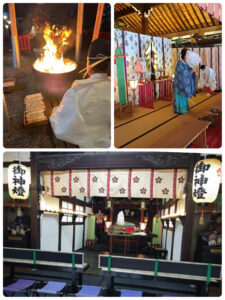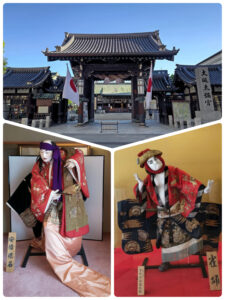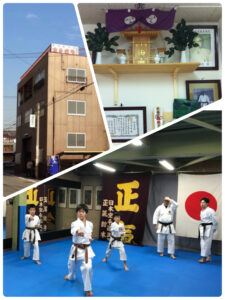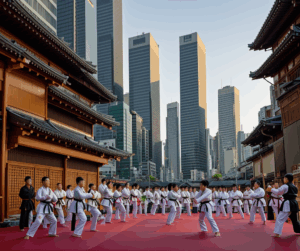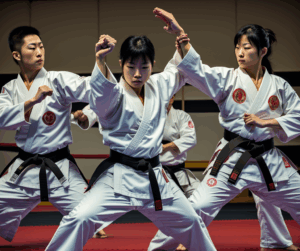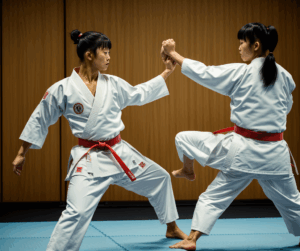Planning a karate-focused vacation in Japan? Whether you’re a seasoned martial artist or a curious beginner, Japan offers an array of opportunities to immerse yourself in this traditional martial art. This guide will introduce you to the best places to experience karate in Japan, along with tips and essential information.
Top Karate Destinations in Japan
Okinawa: The Birthplace of Karate
Okinawa,a chain of islands in the southwestern part of Japan, is widely recognized asthe birthplace of karate. Its rich history and cultural heritage are deeplyintertwined with the martial art, making it a must-visit destination for anykarate enthusiast. The island’s unique blend of indigenous Ryukyuan culture andinfluences from mainland Japan has shaped the development of karate, giving it adistinct character and philosophy. As you explore Okinawa, you’ll encounternumerous dojos, or training halls, where you can immerse yourself in the art andlearn from experienced instructors. From the bustling streets of Naha, thecapital city, to the serene beaches and lush landscapes of the surroundingislands, Okinawa offers a captivating setting for your karate journey. Whetheryou’re a seasoned practitioner or a curious beginner, Okinawa promises anunforgettable experience that will deepen your understanding and appreciation ofkarate.
Karate in Tokyo
Tokyo, Japan’s vibrant capital, is a hub of culturaldiversity and a thriving center for martial arts, including karate. The cityboasts a wide array of premier karate schools and dojos, catering to all levelsof experience. From traditional styles like Shotokan and Goju-ryu to modernvariations, you’ll find a dojo that aligns with your interests and goals. Thedynamic energy of Tokyo provides a unique backdrop for your karate training,allowing you to experience the art in a modern and cosmopolitan setting. Explorethe city’s diverse neighborhoods, from the bustling Shibuya district to theserene temples of Ueno Park, while immersing yourself in the discipline andspirit of karate.
Hidden Gems: Regional Dojo
Beyond the well-known destinations of Okinawaand Tokyo, Japan offers a wealth of hidden gems for karate enthusiasts seeking amore authentic and less tourist-heavy experience. Venture into the countrysideand discover regional dojos where you can train in a more intimate andtraditional setting. From the mountainous regions of Kyushu to the coastal townsof Honshu, each region has its own unique karate traditions and styles. Immerseyourself in the local culture, connect with the community, and experience thetrue essence of karate as it has been practiced for generations. These regionaldojos often offer a more personalized approach to training, allowing you todevelop a deeper understanding of the art and its philosophy.
Choosing the Right Dojo for Your Needs
Identifying Your Goals
Before embarking on your karate vacation, it’s crucial to identifyyour goals and objectives. Are you seeking to learn the fundamentals of karate,refine your technique, or delve deeper into a specific style? Do you prefer atraditional or modern approach to training? Understanding your aspirations willhelp you choose the right dojo that aligns with your needs and interests.Consider factors such as the dojo’s style, teaching methods, instructor’sexperience, and the overall atmosphere. Research different dojos, read reviews,and perhaps even contact them directly to learn more about their programs andapproach.
Reputable Karate Schools
Japan is home to numerous reputable karate schoolsand dojos, each with its own history, lineage, and teaching philosophy. Some ofthe most renowned dojos include the JKA (Japan Karate Association) headquartersin Tokyo, the Shotokan Karate-do International Federation (SKIF) in Osaka, andthe Goju-ryu Karate-do Federation in Okinawa. These organizations have played asignificant role in the development and dissemination of karate worldwide.However, it’s important to note that reputation alone doesn’t guarantee a goodfit for every individual. Consider your personal preferences and training goalswhen selecting a dojo.
Booking and Scheduling
Booking classes at a Japanese dojo typicallyinvolves contacting the dojo directly, either by phone, email, or through theirwebsite. Many dojos offer introductory classes or trial periods for newcomers,allowing you to experience their teaching style and atmosphere before committingto a longer program. When scheduling your classes, be mindful of the dojo’soperating hours and any potential holidays or special events. It’s also a goodidea to inquire about the dojo’s policies regarding cancellations andmake-ups.
Essential Karate Etiquette
Understanding Japanese Cultural Norms
Japan is known for its rich cultural traditions andetiquette, and karate training is no exception. Showing respect for yourinstructors, fellow students, and the dojo itself is paramount. Familiarizeyourself with basic Japanese customs, such as bowing before and after class,addressing your instructor as ‘sensei,’ and maintaining a respectful demeanor.These gestures demonstrate your commitment to the art and your appreciation forthe dojo’s culture.
Dojo Etiquette andPractices
Before stepping into a Japanesedojo, it’s essential to understand the key practices and etiquette that governthe training environment. This includes arriving on time, wearing appropriateattire, maintaining silence during instruction, and following the sensei’sguidance. You’ll also learn about the importance of bowing, the proper way toaddress your instructor, and the etiquette surrounding the use of the dojo’sequipment. By adhering to these practices, you demonstrate your respect for theart and create a harmonious learning environment.
Communicating with Sensei
Effective communication with your sensei is crucial for your progress inkarate. While Japanese language skills are helpful, a basic understanding ofcommon karate terms and phrases can go a long way. Be attentive to your sensei’sinstructions, ask questions when necessary, and demonstrate your willingness tolearn. Remember that communication is a two-way street, and your sensei willappreciate your efforts to understand and apply their teachings.
Karate Gear and Preparation
Necessary Karate Equipment
Toparticipate in karate training, you’ll need a few essential pieces of equipment.These include a karate uniform (gi), a belt (obi), and a pair of karate shoes(zori). The gi is typically made of cotton or a blend of cotton and polyester,and it should fit comfortably without being too loose or too tight. The obi is abelt that is tied around the waist and signifies your rank in karate. Zori aretraditional Japanese sandals that are worn during training. You may also want toconsider bringing a mouthguard, shin guards, and other protective gear,depending on the type of training you’ll be doing.
Where to Buy Karate Gear in Japan
Japan is a paradise for karate enthusiasts, offering a wide selection ofhigh-quality karate gear at affordable prices. You can find karate uniforms,belts, shoes, and other equipment at specialized martial arts stores, departmentstores, and online retailers. Some popular stores include Sports Depo, Alpen,and Rakuten. If you’re looking for traditional or handcrafted gear, you canvisit local artisans or shops specializing in traditional Japanese crafts.
Packing Tips for Karate Travelers
When packing for your karate vacation, it’s essentialto pack light and efficiently. Pack your karate uniform, belt, and shoes in aseparate bag to keep them clean and organized. Consider bringing a smallbackpack or duffel bag for carrying your gear to and from the dojo. Remember topack comfortable clothing for everyday wear, as well as appropriate footwear forwalking and exploring. Don’t forget to pack essential toiletries, sunscreen, andany medications you may need.
Conclusion andSummary
Highlights of a Karate Vacation inJapan
A karate vacation in Japan offers anunparalleled opportunity to immerse yourself in the art’s birthplace, experienceits rich cultural heritage, and train with some of the world’s best instructors.From the historical dojos of Okinawa to the modern training facilities of Tokyo,Japan provides a diverse range of settings for your karate journey. Whetheryou’re seeking to learn the fundamentals, refine your technique, or delve deeperinto a specific style, Japan has something to offer every karate enthusiast.
Final Preparation Tips
Before embarking on your karate vacation, it’s a good idea to researchthe specific dojo you’ll be attending, understand their training schedule, andfamiliarize yourself with any cultural norms or etiquette. Pack your essentialgear, including your karate uniform, belt, and shoes. Remember to bringcomfortable clothing for everyday wear and appropriate footwear for walking andexploring. Most importantly, come with an open mind and a willingness to learn.Your karate journey in Japan will be an unforgettable experience that willdeepen your understanding and appreciation of the art.
How to Continue Your Karate Journey
After returning home from your karate vacation, it’s important tomaintain your practice and continue your journey. Find a local dojo or traininggroup that aligns with your interests and goals. Stay connected with your senseiin Japan, and continue to learn and grow in the art. Remember that karate is alifelong journey, and your experience in Japan will provide you with valuableinsights and inspiration to continue your practice for years to come.
この記事はAI-SEOにより執筆されました

